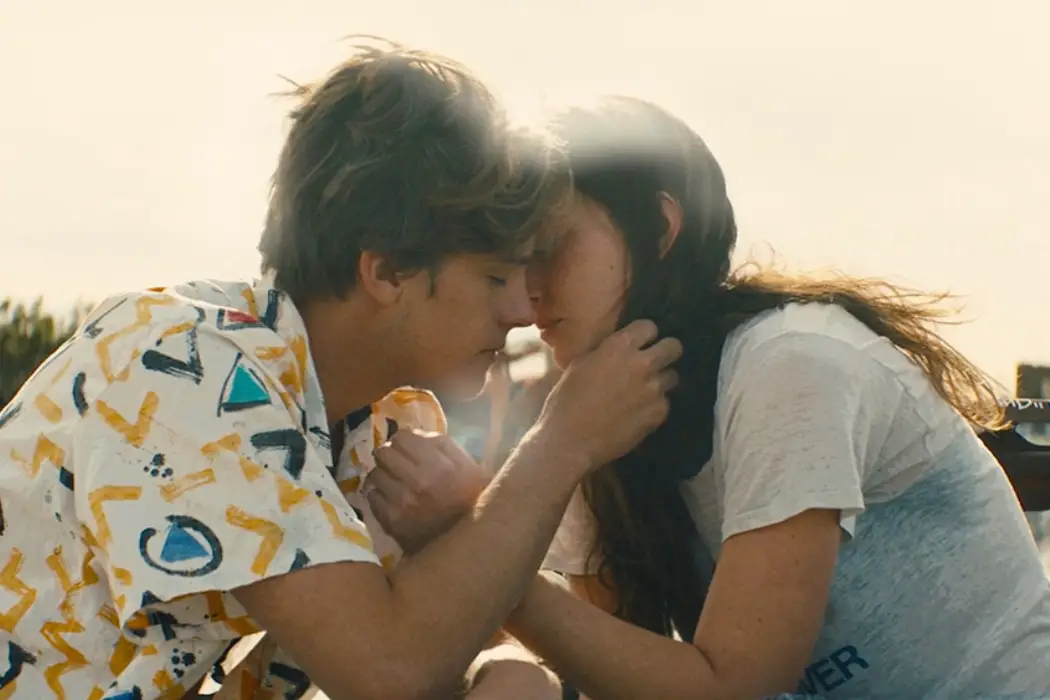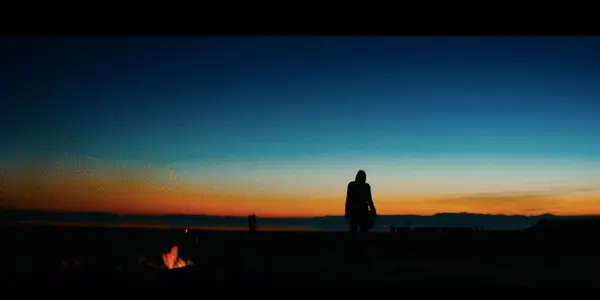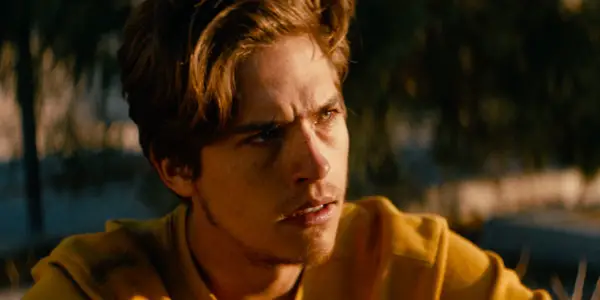TYGER TYGER: A Nice Idea In Need Of A Translator

Soham Gadre is a writer/filmmaker in the Washington D.C. area.…
If the clause “write what you know” is to be taken literally, then Kerry Mondragon fits the bill with his feature debut Tyger Tyger. Off the bat, I can tell you that this was a movie that, outside of its visual style which is very arresting and captivating, did not end up much on my wavelength. Though I can appreciate that much of it is informed by both Mondragon’s upbringing (which on IMDb says was communities in the Sonoran Desert) as well as his relatively recent life (addiction to opioids), I can’t call Tyger Tyger a “good movie”, but rather, an “interesting attempt”.
There is always an apprehension of how to tackle the first feature film of a filmmaker because usually these stories are deeply personal and that personal nature usually clouds a lot of the creative decision-making rather than bolstering it – though of course, most writers/filmmakers initially tend to think the opposite. There is a sense of need to say a lot in a first work because it’s all dying to come out of you. In an interview with LRM Online, Eden Brolin, who plays the motel concierge Tammie, says that the filming process was very open-ended and relied a lot on ‘go with your gut’ instinctual approach to performance and story. This is a nice idea, but it still requires a lot of wrangling and it was clear as the movie went along that the threads all got away rather quickly.
Existing in Its Own Dimension
Tyger Tyger is set within a pandemic and while it resembles the one we face now in the way people are contagious, sometimes need to wear masks, and there is a healthcare crisis that makes medication and treatment scarce, it’s different in that there is an eerie post-apocalyptic desolation in the surroundings. The time/place of the film is not really decipherable beyond the fact that most modern technology does not exist. This could either mean that it takes place in a fictional pandemic in the 80’s – informed mainly by the movie’s synth-heavy soundtrack and that the main characters drive a 1988 Buick LeSabre – or in a future where technology has completely regressed and people have to use payphones.

The retro style of the movie really is its highest token, lit with a sunburnt sheen that is reminiscent of New Hollywood roadies like Easy Rider, Texas Chainsaw Massacre, and Paris, Texas. It gives the movie a sense of anarchic freedom that complements its premise of a young woman named Blake (Sam Quartin), her mute friend Bobby (Nekhebet Kum Juch), and a drug-addict Luke (Dylan Sprouse) who they kidnapped who go to deliver life-saving medicine that they stole from a pharmacy. The camerawork, by Ben Braham Ziryab, glides and floats around always managing to catch a bit of lens flare and beams from the sun or the Buick’s headlights, and from time to time there the frame is interrupted by impressionistic paints and drawings.
In A Strange Place… With a Dead End
Mondragon includes a lot of influence of the community he grew up in, where he was supposedly surrounded by poets and heavy peyote usage, into the ‘vibe’ of the film. Namely in its hipster-outlaw outpost where our central trio of Blake, Bobby, and Luke go into hiding from a dealer named Joe. Mondragon described the journey of the film to be like a personal take on Wizard of Oz where his characters come from a known, safe place into a nether-region that seems like a distant fantasy land. In this weird little ‘hipster Oz’, there are guns, drugs, and people just jamming to music blasted out of their minds in his little enclave, but this is also where the film’s narrative goes to die.

Unlike in another acid-dripped roadie, David Lynch’s Wild at Heart, which also features allusions and references to Oz, the metaphors at work here remain satisfied with half-measure and frustrating generality. While I’m never one to complain about a movie being symbolic and avoiding feeding its audience narrative, the problem with Tyger Tyger is that there are hardly any stakes. The central trio bounce from place to place, have a few misunderstandings where they yell at each other in disjointed dialogue – or in the case of Bobby just nod or smile – and have no real depth of purpose other than some unmoving poetic contemplation which ties into the film’s title, taken from a poem by William Blake.
Conclusion
There is a clear vision to the movie and Mondragon knows what he wants to show, but there’s no sense of communication here that is translatable beyond a purely personal dictum that we just have to take his word for. Even Terrence Malick, in his most spiritual and poetic, evokes familiar and common moments and feelings through creative decision-making. These come with time, and Tyger Tyger is the first attempt by a filmmaker who has a personal story to tell and singular ideas to share, but ‘writing what you know’ also means saying it in a way that others can share in on a little bit of your journey. This is where ultimately the movie doesn’t hit the mark.
Tyger Tyger was released in select virtual cinemas across the U.S. on February 26th, 2021.
Watch Tyger Tyger
Does content like this matter to you?
Become a Member and support film journalism. Unlock access to all of Film Inquiry`s great articles. Join a community of like-minded readers who are passionate about cinema - get access to our private members Network, give back to independent filmmakers, and more.
Soham Gadre is a writer/filmmaker in the Washington D.C. area. He has written for Hyperallergic, MUBI Notebook, Popula, Vague Visages, and Bustle among others. He also works full-time for an environmental non-profit and is a screener for the Environmental Film Festival. Outside of film, he is a Chicago Bulls fan and frequenter of gastropubs.












